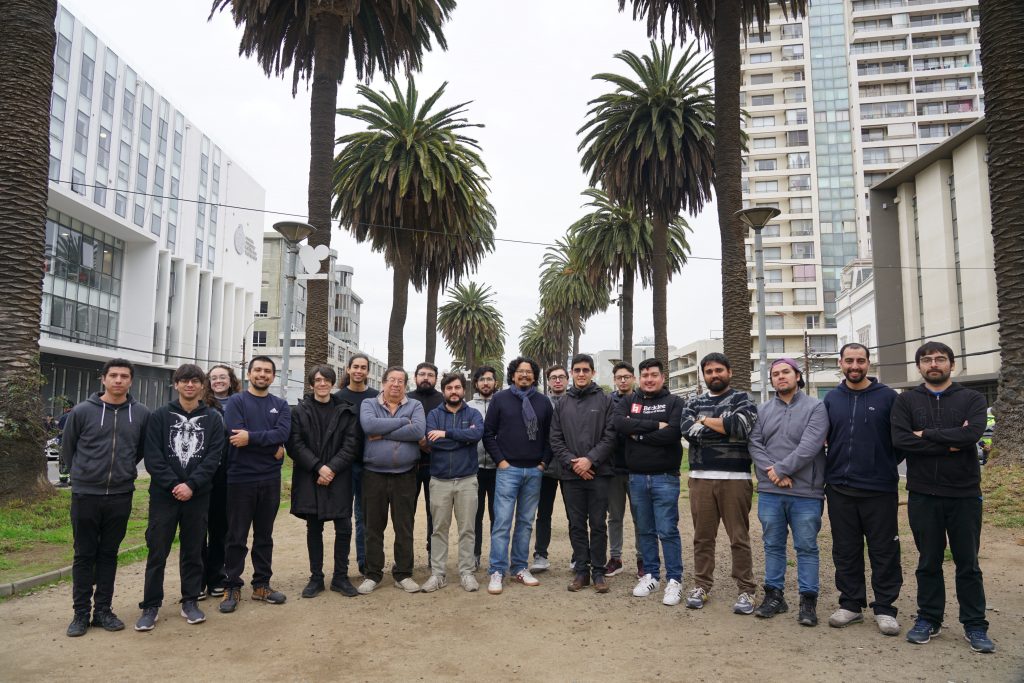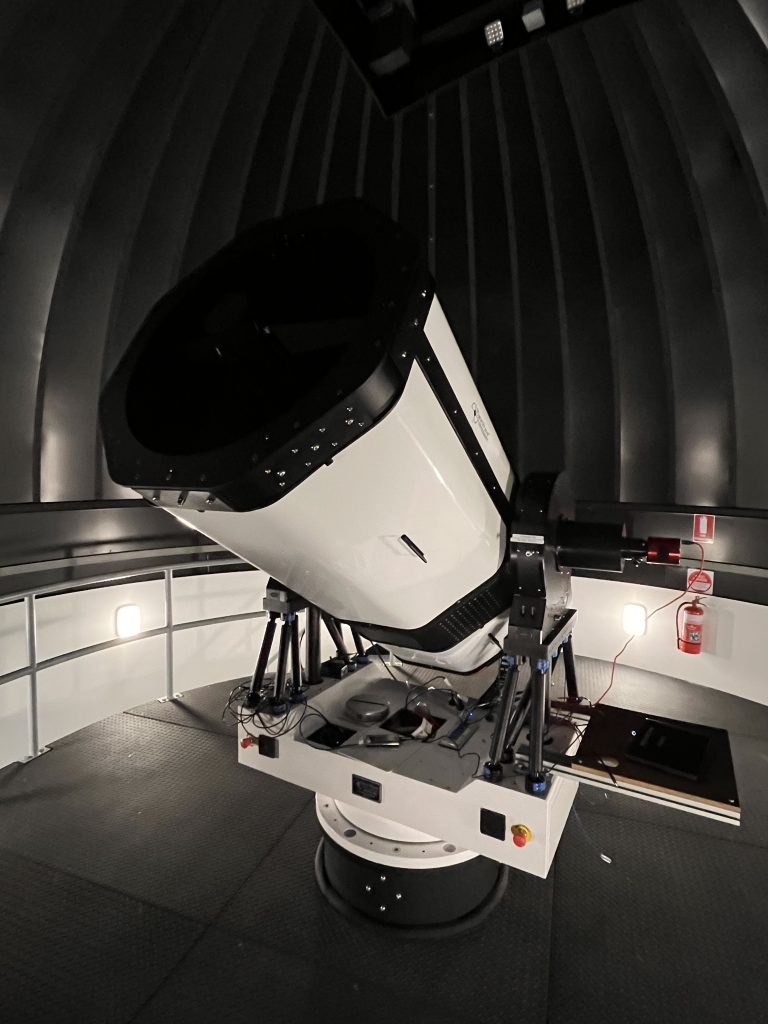It will allow the development of satellite optical communications research projects.
The Optoelectronics Laboratory (Optolab) from PUCV’s School of Electrical Engineering, has secured, for the first time in the university’s history, the Major Scientific and Technological Equipment Fund (FONDEQUIP) from the National Agency for Research and Development (ANID), which provides approximately one million dollars for the acquisition of scientific and technological equipment.

The project titled “Optical Communication System for Current and Future Space Missions” is led by Professor Esteban Vera, academic at the School of Electrical Engineering and director of the laboratory and has the support of several national researchers from various institutions. This is one of the five projects awarded this fund by ANID nationwide.
The goal is to continue and enhance research in optical communications in the country, where Optolab and PUCV already play a prominent role. The application is designed for both ongoing and future space missions. Currently, the laboratory has several related projects underway, adding this new achievement in 2024.
Luis Mercado, Vice-Rector for Research, Creation, and Innovation (VINCI) at PUCV, states, “the consolidation of research lines achieved at PUCV has allowed for the maturation of large-scale projects. In this sense, the researcher’s track record, their experience in securing various projects that attest to their recognition in their field, has enabled them to win a Major FONDEQUIP grant, which is a significant contribution to the university in sustaining research development in this area”.
Project Motivation
Space is becoming increasingly accessible with the standardization and miniaturization of satellites, such as CubeSats. However, the demand for transmitting data collected by sensors in orbit is growing.
Therefore, there is a need to change communication methods with satellites, with optical communication via laser being the best option for achieving higher bandwidth. The research aims to explore the use of links between space, with satellites sent by the University of Chile (SUCHAI), and Earth, with the Space Observatory located on PUCV’s Curauma Campus.

The grant will enable the purchase of a 70 cm aperture telescope, RC700 Ritchey-Chrétien from Planewave, along with a series of accessories for optical communications, which will expand the Observatory’s capacity and allow other research groups, both nationally and internationally, to use this system, testing their instruments and algorithms to improve data download from their space missions.
Regarding the awarding of this major project, Professor Vera comments that it will be a collaborative effort between several national institutions, including the University of Chile, University of La Frontera, University of the Andes, University of Santiago de Chile, and the Chilean Nuclear Energy Commission, led by PUCV from its Departments of Electrical Engineering and Physics.
“The awarding of this project provides enormous growth opportunities for the university, and the idea is to advance toward the creation of a national space research center. Our support as PUCV will be from the ground, but we know that to achieve ambitious projects, we need to combine all available national capabilities. Collaborative work is highly relevant to forming advanced human capital and bringing together those interested in advancing not only satellite communications but also the external world we might someday colonize”, says the project’s principal investigator, Esteban Vera.
He adds that the idea is for the project to open doors for more institutions: “This will be a testing platform for technologies related to satellite communications, which also share many of the challenges already known in astronomy for observing the cosmos. We hope that students and researchers from different parts of the country will come to see our facilities and test their developing instrumentation in the sky. This will also increase mobility and collaboration opportunities with other national laboratories and universities around the world”.
This is a significant achievement for PUCV and the Optoelectronics Laboratory, which continues to establish itself as a leading research center at the regional, national, and even international levels.
Mónica S. Cárdenas Claros, Director of VINCI PUCV Research, explains, “Securing a Major Fondequip represents a major milestone for PUCV, as it marks a significant advancement in our research capabilities, enhances our prestige, and strengthens our role as a leading institution in research and development. It also recognizes the quality of our projects and the capability of our researchers. This achievement demonstrates that our academics’ projects are highly competitive and that PUCV, and specifically the research conducted at Optolab under Professor Esteban Vera, is at the forefront”.
